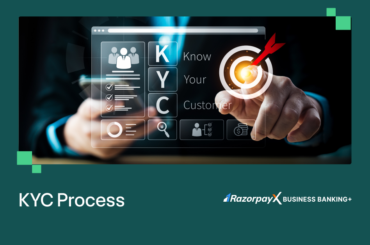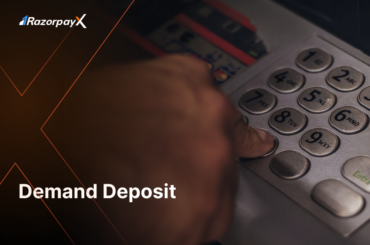Table of Contents
What is an Escrow Agreement?
An escrow agreement is a legal contract between two or more parties that outlines the terms and conditions under which an asset is held by a third party until certain conditions are met.
The third party, also known as an escrow agent, is a neutral party responsible for holding the asset and distributing it to the appropriate party once the agreement conditions have been met.
How Do Escrow Agreements Work?
Escrow agreements are an important part of transactions in a number of industries like real estate, mergers and acquisitions and other such complex arrangements. Real estate escrow accounts are also called RERA escrow accounts.
The following are the basic steps involved in an escrow agreement:
- The buyer and seller sign the escrow agreement, which outlines the terms and conditions of the transaction, including:
- The purchase price
- The closing date
- The conditions under which the asset will be transferred to the buyer
- The buyer deposits the purchase price into the escrow account.
- The seller transfers the asset to the escrow agent.
- The escrow agent verifies that all of the conditions of the agreement have been met
- Once all the conditions have been met, the escrow agent disburses the purchase price to the seller and transfers the asset to the buyer
Types of Escrow Agreements
Escrow agreements are used across industries in a number of transactions. Here are the most common types of agreements:
Real estate escrow agreements: These agreements are used to hold funds and documents in escrow during a real estate transaction. The escrow agent will typically hold the buyer’s earnest money deposit, the seller’s title to the property, and any other necessary documents. Once all of the conditions of the sale have been met, the escrow agent will disburse the funds to the seller and transfer the title to the buyer.
Business asset escrow agreements: These agreements are used to hold business assets in escrow during a business asset sale or merger and acquisition. The escrow agent will typically hold the seller’s assets, such as cash, inventory, and equipment, until all of the conditions of the sale have been met. Once all the conditions have been met, the escrow agent will release the assets to the buyer.
Intellectual property escrow agreements: These agreements are used to hold intellectual property assets in escrow, such as patents, trademarks, and copyrights. These agreements are often used to protect the intellectual property of the licensor in case the licensee defaults on their obligations under the licensing agreement.
Software escrow agreements: These agreements are used to hold the source code of software in escrow until certain conditions are met, such as the vendor defaulting on their support obligations or going out of business. This allows the licensee to access the source code and continue using and maintaining the software in case of a default.
Importance of Escrow Agreements
Escrow agreements offer a number of benefits to both buyers and sellers, including:
- Protection for both parties: Escrow agreements protect both the buyer and seller by ensuring that the terms and conditions of the transaction are met before the asset is transferred.
- Reduced risk of fraud: Escrow agreements help reduce the risk of fraud by ensuring that the asset is held by a neutral party until the transaction is complete.
- Reduced stress: Escrow agreements can help to reduce the stress of the transaction by providing both parties with peace of mind, knowing that the asset is being held by a neutral party.
Parties in an Escrow Agreement
There are typically three parties involved in an escrow agreement:
- Depositor: The depositor is the party who deposits the asset(s) into the escrow account. This could be the buyer in a real estate transaction or the seller in a business asset sale.
- Beneficiary: The beneficiary is the party entitled to receive the asset(s) from the escrow account once all of the conditions of the agreement have been met. This could be the seller in a real estate transaction or the buyer in a business asset sale.
- Escrow agent: The escrow agent is a neutral third party who holds the asset(s) in escrow and disburses them to the beneficiary once the agreement conditions have been met. Escrow agents are typically licensed and insured financial institutions.
In some cases, there may be more than three parties involved in an escrow agreement. For example, in a complex real estate transaction, there may be multiple buyers and sellers or a lender involved. However, the three core parties are the depositor, beneficiary, and escrow agent.
Speak with an escrow expert for free
Escrow Agreement Format
This is what a simple escrow agreement looks like. Complex transactions between multiple parties would require a more extensive agreement.
Escrow Agreement
This Escrow Agreement (the “Agreement”) is made and entered into as of the <DATE> by and between:
- <BUYER NAME>, whose address is <BUYER ADDRESS> (“Buyer”);
- <SELLER NAME>, whose address is <SELLER ADDRESS> (“Seller”); and
- <ESCROW AGENT NAME>, whose address is <ESCROW AGENT ADDRESS> (“Escrow Agent”).
- Escrow Deposit
Buyer agrees to deposit with Escrow Agent the sum of <AMOUNT> (the “Escrow Deposit”) on or before <DATE>.
- Conditions of Release
Escrow Agent shall release the Escrow Deposit to Seller upon the following conditions being met:
- Buyer has obtained financing for the purchase of the property located at <PROPERTY ADDRESS> (the “Property”);
- Seller has provided Buyer with clear title to the Property; and
- All other closing conditions have been satisfied.
- Disbursement of Escrow Deposit
Upon the satisfaction of all of the conditions of release, Escrow Agent shall disburse the Escrow Deposit to Seller within <NUMBER> business days.
- Fees and Expenses
Buyer and Seller shall each be responsible for paying one-half of the fees and expenses of the Escrow Agent.
- Governing Law
This Agreement shall be governed by and construed in accordance with the laws of the State of <STATE>.
- Entire Agreement
This Agreement constitutes the entire agreement between the parties with respect to the subject matter hereof and supersedes all prior or contemporaneous communications, representations, or agreements, whether oral or written.
- Severability
If any provision of this Agreement is held to be invalid or unenforceable, such provision shall be struck from this Agreement and the remaining provisions shall remain in full force and effect.
- Waiver
No waiver of any provision of this Agreement shall be effective unless in writing and signed by both parties.
- Notices
All notices and other communications under this Agreement shall be in writing. They shall be deemed to have been duly given when delivered in person, upon the first business day following deposit in the United States mail, postage prepaid, certified or registered, return receipt requested, addressed as follows:
If to Buyer: <BUYER NAME> <BUYER ADDRESS>
If to Seller: <SELLER NAME> <SELLER ADDRESS>
If to Escrow Agent: <ESCROW AGENT NAME> <ESCROW AGENT ADDRESS>
or to such other address as any party may designate in writing occasionally.
- Headings
The headings in this Agreement are for convenience only and shall not affect its interpretation.
- Counterparts
This Agreement may be executed in one or more counterparts, each of which shall be deemed an original, but all of which together shall constitute one and the same instrument.
IN WITNESS WHEREOF, the parties have executed this Agreement as of the date first written above.
<BUYER NAME>
<SELLER NAME>
<ESCROW AGENT NAME>





